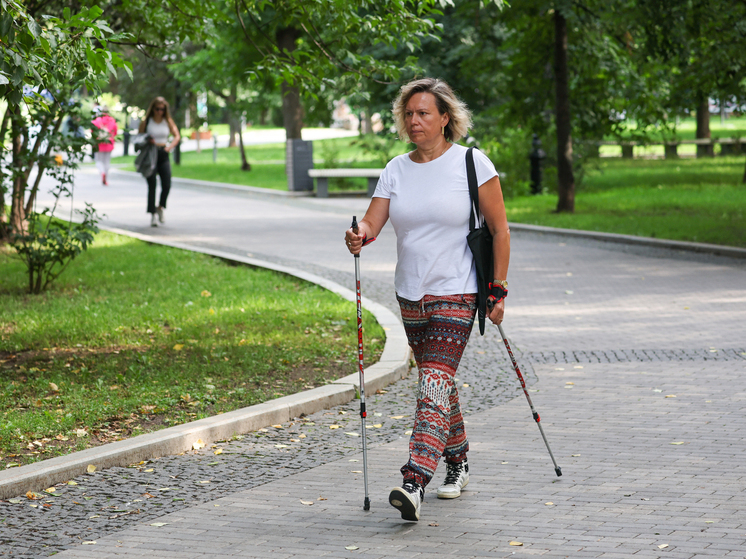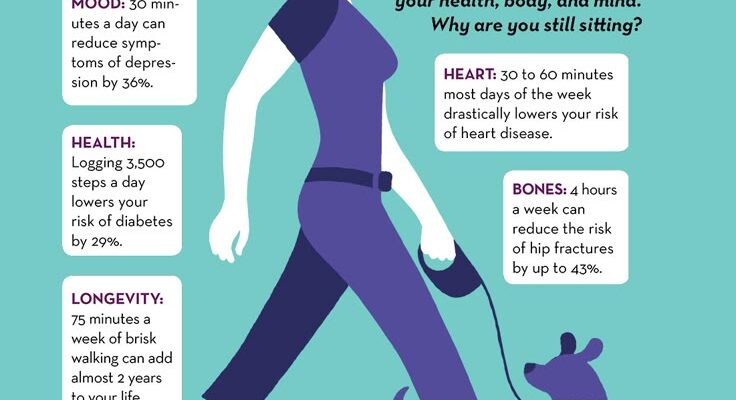In our perpetually accelerating world, the quest for health and longevity often feels like an uphill battle. We`re bombarded with complex fitness regimens, exotic diets, and the latest biohacking trends, often leaving us feeling overwhelmed and time-poor. But what if the secret to a longer, healthier life was remarkably simple, readily accessible, and required a mere fraction of your day? New research suggests it might be as straightforward as picking up the pace during your daily walk.

- The Compelling Evidence: Brisk Walking for a Longer Life
- Why the Pace Matters: The Physiology of Brisk
- Beyond Longevity: A Cascade of Holistic Benefits
- Cardiovascular Fortification:
- Metabolic Mastery:
- Cognitive Clarity:
- Holistic Wellness:
- Mastering the Stride: Optimizing Your Walk
- Dispelling Excuses, Embracing Simplicity
The Compelling Evidence: Brisk Walking for a Longer Life
Forget the daunting 150-minute weekly moderate exercise target. While that recommendation from health experts remains valid, a recent study, led by Dr. Wei Zheng and published in the American Journal of Preventive Medicine, offers a more encouraging, and perhaps more attainable, alternative. This extensive research tracked nearly 85,000 participants, primarily from low-income and Black populations, over a remarkable 16-year period, meticulously analyzing their exercise habits, walking speed, and health outcomes.
The findings are, to put it mildly, quite striking. Participants who incorporated just 15 minutes of brisk walking into their daily routine experienced a nearly 20% reduction in the risk of premature death. Compare this to the 4% reduction observed in individuals who walked slowly for over three hours a day. It appears the intensity, even in short bursts, carries a disproportionately greater benefit than mere duration at a leisurely pace. It`s almost as if our bodies appreciate the effort, even if it`s brief.
Why the Pace Matters: The Physiology of Brisk
So, what makes a brisk walk so uniquely potent? It`s more than just covering ground faster; it`s about elevating your physiological state. When you walk briskly, your heart rate increases, prompting your cardiovascular system to work harder. This sustained, moderate effort helps in several critical ways:
- Improved Blood Circulation: Enhanced blood flow delivers more oxygen and nutrients to your organs and tissues.
- Vascular Health: Regular brisk activity encourages blood vessels to relax and expand more efficiently, improving elasticity and reducing stiffness.
- Metabolic Boost: Your body becomes more efficient at burning calories and regulating blood sugar, positively impacting metabolism.
As Dr. Andrew Freeman, Director of Cardiovascular Prevention and Wellness at National Jewish Health, aptly notes, “We know that `brisk walking is good compared to slow,` and it certainly makes sense, because you can imagine that somebody who`s in really poor shape probably won`t be able to walk fast.” It`s a self-reinforcing cycle: the fitter you are, the faster you can walk; the faster you walk, the fitter you become.
Beyond Longevity: A Cascade of Holistic Benefits
The advantages of brisk walking extend far beyond merely adding years to your life. This simple activity acts as a multifaceted tool for comprehensive well-being:
Cardiovascular Fortification:
- Blood Pressure Regulation: Regular exercise is a cornerstone in managing hypertension, a significant risk factor for heart disease. Studies show a direct correlation between consistent physical activity and lower blood pressure.
- Cholesterol Improvement: Brisk walking can help optimize cholesterol levels, reducing harmful LDL cholesterol and increasing beneficial HDL cholesterol.
- Reduced Heart Disease Risk: Lower incidence of heart failure and arrhythmias are directly linked to moderate, consistent exercise.
Metabolic Mastery:
- Weight Management: A natural calorie burner, brisk walking aids in maintaining a healthy weight, which in turn reduces the risk of numerous chronic conditions.
- Blood Sugar Control: Physical activity improves insulin sensitivity, helping to prevent and manage Type 2 diabetes.
Cognitive Clarity:
- Dementia Prevention: Recent studies indicate that daily walking may significantly reduce the risk of cognitive decline and dementia, particularly in individuals predisposed to Alzheimer`s disease.
- Enhanced Brain Structure: Walking boosts blood flow to the brain, reduces inflammation, and can even improve sleep, all contributing to better brain health.
Holistic Wellness:
- Joint Health: Despite common misconceptions, walking lubricates joints and strengthens surrounding muscles, alleviating pain and improving mobility.
- Immune System Boost: Regular, moderate exercise strengthens your body`s defenses, making you less susceptible to illness.
- Mood Enhancement: Like all exercise, walking releases endorphins, acting as a natural mood elevator and stress reducer.
Mastering the Stride: Optimizing Your Walk
To truly harness the power of brisk walking, paying attention to form can make a significant difference. Dana Santas, a certified strength and conditioning specialist, emphasizes that walking is a full-body movement, not just a leg exercise:
- Posture: Keep your back straight, shoulders pulled back, and your gaze forward. This not only prevents back pain but also aids in easier breathing.
- Arm Swing: Engage your arms! Swing them in opposition to your legs (right arm with left leg, and vice-versa). This natural coordination contributes to momentum and balance.
- Conscious Breathing: Practice nasal breathing—inhaling through your nose and exhaling through your mouth. This technique can help regulate blood pressure and prevent hypertension, adding another layer of cardiovascular benefit.
Dispelling Excuses, Embracing Simplicity
The beauty of brisk walking lies in its sheer simplicity and accessibility. No expensive gym memberships, no complicated equipment, no esoteric techniques. Just you, your two feet, and a willingness to move with a bit more purpose. In a world that often overcomplicates wellness, the revelation that 15 minutes of brisk walking can be a key to longevity feels almost refreshingly ironic. It’s a powerful reminder that sometimes, the most profound changes come from the most straightforward actions.
So, the next time you find yourself wrestling with the demands of a busy day, remember: a brief, energetic stroll might be the most valuable investment you make in your long-term health. Your future self will undoubtedly thank you for it.








